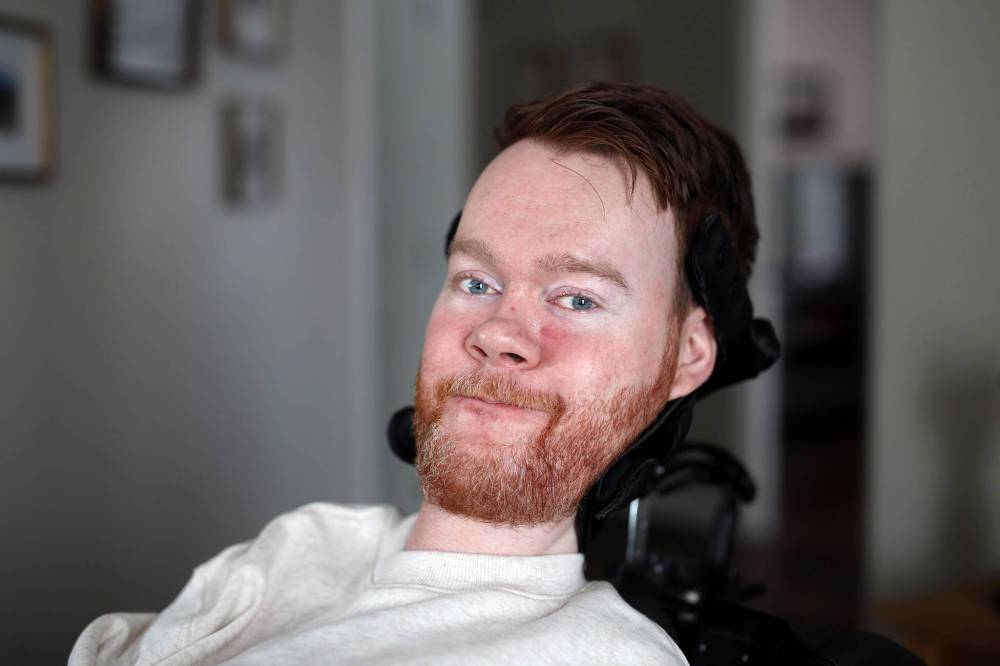Province commits to one-year medicine coverage for Rivers man
Advertisement
Read this article for free:
or
Already have an account? Log in here »
We need your support!
Local journalism needs your support!
As we navigate through unprecedented times, our journalists are working harder than ever to bring you the latest local updates to keep you safe and informed.
Now, more than ever, we need your support.
Starting at $15.99 plus taxes every four weeks you can access your Brandon Sun online and full access to all content as it appears on our website.
Subscribe Nowor call circulation directly at (204) 727-0527.
Your pledge helps to ensure we provide the news that matters most to your community!
To continue reading, please subscribe:
Add Brandon Sun access to your Free Press subscription for only an additional
$1 for the first 4 weeks*
*Your next subscription payment will increase by $1.00 and you will be charged $20.00 plus GST for four weeks. After four weeks, your payment will increase to $24.00 plus GST every four weeks.
Read unlimited articles for free today:
or
Already have an account? Log in here »
A Rivers man born with spinal muscular atrophy said the Manitoba government’s sudden change of heart to fully fund his coverage for an expensive medication is “surreal.”
Jeremy Bray — who was diagnosed with a rare motor neuron disease that causes his muscles to slowly weaken ― and his family met with Health Minister Uzoma Asagwara on Monday pleading to have the cost of his drug treatment covered, but Manitoba’s position remained unchanged until Tuesday afternoon.
“All I’ve wanted is a chance to show that the treatment works, and with this decision, I’ll be given that chance, so I’m very happy with how this process has turned out,” Bray told the Sun on Wednesday. “We’re looking forward to hearing some of the details in the coming days, but we’re very happy and very relieved.”

The province made a one-year commitment to pay for Bray’s treatment, which is estimated to cost $300,000 annually. Manitoba Premier Wab Kinew recognized Bray’s “remarkable tenacity and perseverance” in advocating for his health and felt “moved by the media reports overnight.”
“We would love it if this pharmaceutical company would be donating this medication prior to its approval here in Canada, but in the interim, we’re willing to work with them in finding a path forward,” Kinew said during question period at the legislative building on Tuesday.
The administrative details of the province’s drug coverage “are being finalized behind the scenes,” said Asagwara, but in the meantime, the government will continue to advocate through the national processes that determine access to treatments like this.
“We know Jeremy and his family are dealing with an incredibly difficult situation, and our focus throughout has been on supporting them and moving quickly through the steps required to make this treatment available,” Asagwara said in a statement to the Sun on Tuesday
For more than six months, Bray, 30, has been taking a drug called risdiplam that helps him maintain the function of his face, voice and left thumb to operate his wheelchair.
Bray had been denied access to the drug since 2021 until May of this year because the Canada Drug Agency, which is responsible for co-ordinating drug policy among the provinces and territories, doesn’t recommend treatment for patients older than 25 due to limited data.
Thanks to “compassionate coverage” from the pharmaceutical company Roche, he was able to receive treatment for six months. Last week, he found out Roche is no longer able to fully cover the drug at no cost and that his remaining supply would run out at the end of this month.
Bray said his family felt emotional and worried they might have to sell their home to finance the drug without other supports from the province or Roche after leaving the meeting with the health minister on Monday.
At the time, his family didn’t hear any firm answers on whether the province would provide funds, though the minister did commit to putting pressure on the pharmaceutical company to extend his compassionate coverage and to urge the federal agency to do a new clinical trial so new recommendations can be made.
Progressive Conservative Opposition Leader Obby Khan said the government’s announcement is “good news,” but he questioned why the premier was “playing games with people’s lives” by not making the commitment earlier.
The health minister also said the province sent another letter to the Canada Drug Agency “to reinforce the urgency of Jeremy’s situation and to push for every pathway available.”
Provinces across Canada, including Manitoba, currently foot the bill for patients up to 25 years old and then make decisions according to their provincial drug plans, patient advocate Susi Vander Wyk said Tuesday.

There are no age restrictions for patients taking risdiplam in Quebec, and other jurisdictions like British Columbia, Alberta and Saskatchewan provide coverage on a case-by-case basis, Vander Wyk said, who is the executive director of Cure SMA Canada, which advocates for patients with spinal muscular atrophy.
The executive director, who is based in Chilliwack, B.C., has a 29-year-old daughter with spinal muscular atrophy that has been able to access risdiplam at no cost since 2022.
Her daughter, Holli Vander Wyk, uses a wheelchair and has function in her hands. After starting treatment, she was able to take an accelerated university program in education and now works as a Grade 3 teacher in Chilliwack.
Bray said patients taking the drug typically don’t see the full benefits until after roughly a year. So far, he’s felt less fatigued, allowing him to work longer days as a data consultant at the Louis Riel School Division.
His family has also told him that his face is more expressive, and his voice is clearer.
Those with spinal muscular atrophy complete annual neurological assessments and can stay on the drug for as long as it benefits their health.
Bray had a neurological assessment in mid-April last year and expects he’ll have another assessment done around the same time in 2026.
